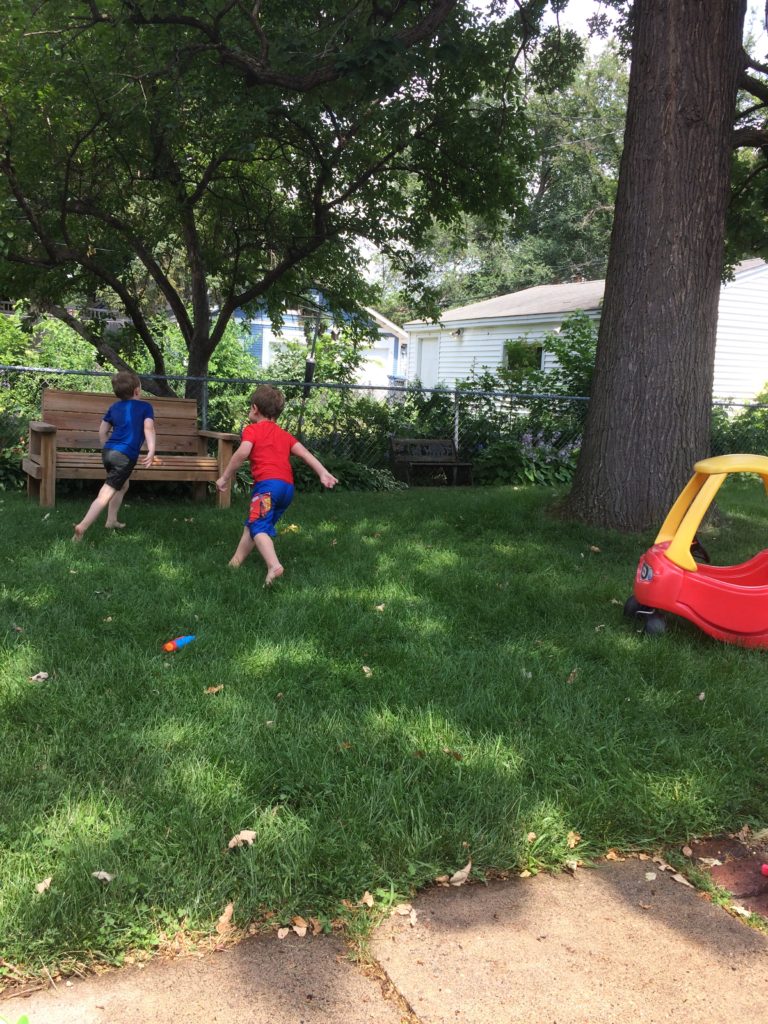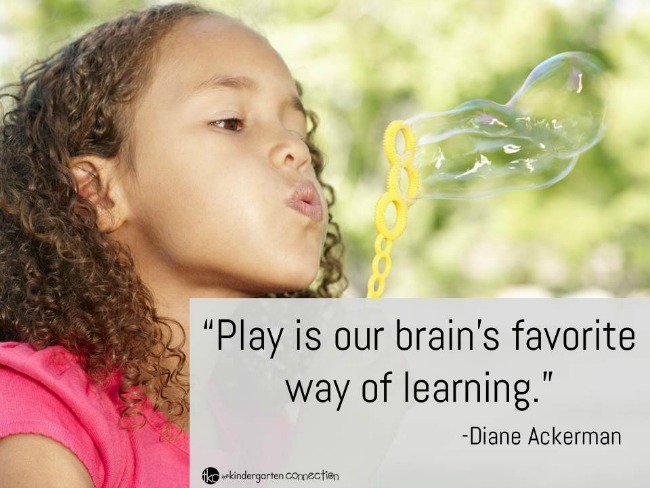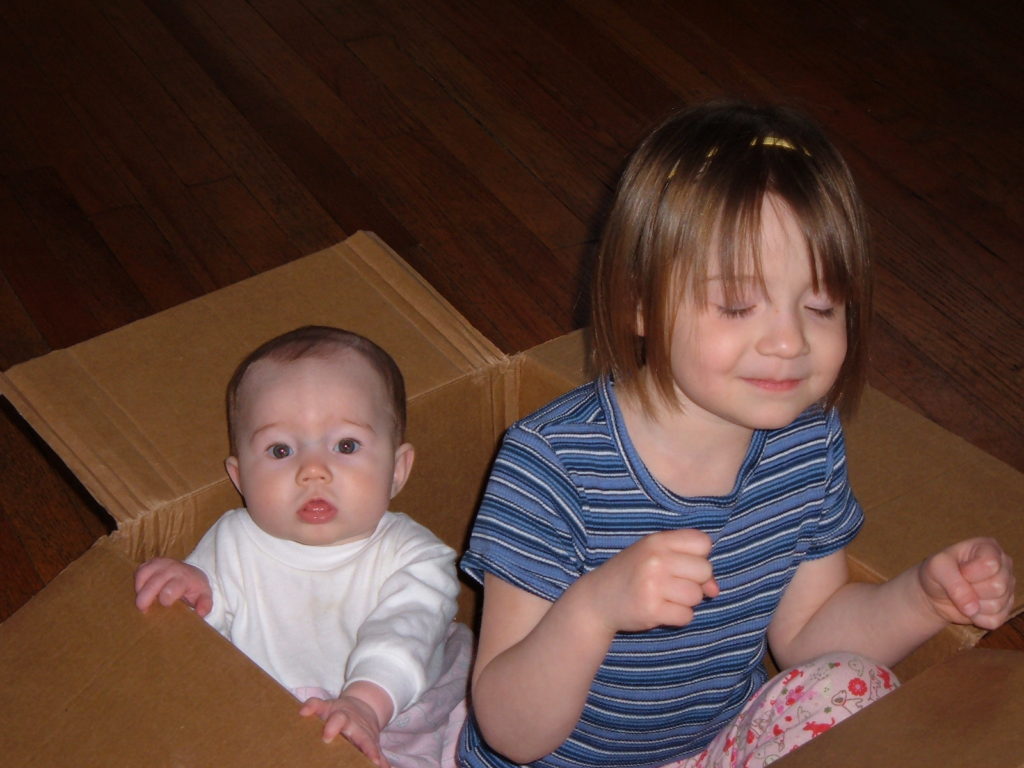Going to Neverland
They crouch beneath the table,
small foreheads almost touching,
deep in fevered conversation;
they hide behind the couch, whispering
short missives to each other;
they take a stand on the Adirondack
chairs in the porch, arms held high – imagined
swords, light sabers, or rifles aimed
for fiercely fighting their foes.
They run pell-mell through the round-about:
the living room, dining room, kitchen, foyer,
then back through the living room, again.
I know they are deep in the forest of Neverland;
submerged to the hilt, with imagination
in overdrive – that intense, subterranean
creation of fears and dreams that comes alive
and plays out to a satisfaction, which serves
as Pan in taming the hysteria of their lives,
championing themselves, and making
sense of us senseless adults.
I wish, as I watch them—trying to remain
the proverbial mouse in the corner, I wish
I could go back there with them.
By Annette Gagliardi September 2016
Going to Neverland, won 2cd place, Stevens Family Award, at the LOMP Convention October 22, 2017.
As I write this, our youngest Granddaughter is playing ‘boat’ on the couch. She has all the pillows stacked around her. Now she slithers to the rugged floor and lays on her stomach, kicking her feet in the air, waving her arms and emitting grunting noises. I think she is pretending to swim. She is ‘saving’ the stuffed bear that has fallen off the boat, . . . er couch.
Yes, the Duplos are in the living room, her Little Tikes play house is ready in the kitchen, there are dollies and a doctor kit on the front porch, books, crayons, paints, Plahdoh and more. . . so much more available to her. And I am ready to play with her, as well. But this kind of play is so valuable.
Fred Rogers reminds us that children using their imaginations move beyond the bonds of reality. Thomas Edison says he never did a day’s work in his life-it was all fun, and Einstein says play is the highest form of research. This tells us that play is a good thing, a worthy thing, an essential thing,
Yet, this imaginative play – using little of not-much-of-anything is the richest play a child can have. I put aside my small disappointment that all my lugging of toys up from their storage spaces is for naught. I’m glad she can use her imagination to dream up something that is not.
The process of imagination – pretending, builds skills in many developmental areas.
To overhear the conversation of imaginary play is to be amazed. I hear words and phrases I have said, and some others I don’t recognize. That mimicry helps children cement the language and make the connections between heard and uttered speech. In addition, the process helps children connect spoken and written language.
One of the biggest developmental skills to build at this preschool level (Imogen is three), is social-emotional skills. She is learning how to enter and exit play with other kids, to take turns and share, to wait while someone else is speaking. But, more importantly, she is learning empathy, and sympathy. When she pretends to be a different character, she is taking another point of view, aside from her own egocentric viewpoint. She is beginning to understand that others have feelings aside from hers and that their feelings are just as important as her own.
Pretend play provides an opportunity to explore a variety of problem-solving strategies, albeit, many forms of ‘magic’ solve her pretend problems. Thinking outside the box is a very good adult characteristic, so I don’t dismiss any ideas she has, as one future day they may be something we purchase or use.

The boys, who are just now turning seven, are rowdier. They tend to roughhouse more often than our youngest granddaughter. Altho, she can be as boisterous as her big brother and cousin. The shoot-em-up, kill-the monster type of pretend play was tough for me to entertain when the boys were three and four. Yet I know this encourages kids to feel competent. Killing the ‘monsters’ creates strategies for conquering their fears. Boisterous play, (given certain limits) helps children self-regulate when and where the loud and rowdy play is appropriate, while providing space to get their big emotions out and release stress.

Somewhere between childhood and adulthood many of us lose the ability to play, or to even spend time imagining. Yet, play is an important source of relaxation and stimulation for adults.
Sports, leisure activities such as playing cards puzzles or board games, or simply goofing off with friends – sharing jokes, etc. all provide time for imagination, problem solving strategy practice and fun. Playing with your kids or grandkids: building snow-fellows, playing catch or kickball, riding bikes or even taking a walk together are forms of play that can provide as much benefit for adults as for their children.
What type of play do you engage in? Where and when do you play? Who do you play with? Sometimes we want play alone as well as with others. How do you use your imagination? I play cards with a group of women from church and I always come away thinking “That was fun!”. Since COVID, I have missed those card playing times. I can still play solitare, even though it’s not the same.
Play is as crucial for adults as it is for children because it adds joy to life, relieves stress, recharges us, and connects us to each other. It makes life more productive and more pleasurable.
“ Man is God’s plaything, and that is the best part of him. Therefore every mabn and woman should live life accordingly, and play the noblest games . . . What, then, is the right way of living? Life must be lived as play.” ~ Plato
Resources:
“The Importance of Pretend Play” by Scholastic Parents Staff. At: https://bit.ly/3cyTtqM
“The Benefits of Play for Adults” by HelpGuide at: https://bit.ly/3kLTo6c
Quotes with graphics from: https://bit.ly/3i56h9N
